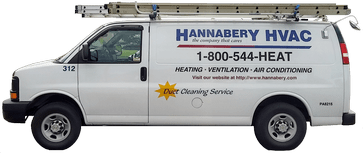Where class is always in session!
[Page 3 of 3]
"Studying may continue"
Frequently Asked Heat Pump Questions:
How will I know when it's time to replace my Heat Pump?
When the system starts giving you more problems than seem cost-effective to fix. If the unit is approaching 10 years in age and major components such as the compressor, reversing valve, accumulator or outdoor coil goes bad, it might makes sense to replace instead of fix. Replacing a compressor for example, is somewhat less expensive than replacing the entire unit, but new units may give you greater efficiency, lower operating costs and a brand new warranty on the whole unit, not just the part to be replaced. When faced with major repairs, we can help you make the right choice.
My present Heat Pump does not keep us comfortable. Should I replace it with a larger one?
In most cases no. The ductwork is already sized for the heat pump itself. So a larger heat pump would need larger ductwork. The problem may be due to undersized ductwork, poor system design or installation. You may need ductwork modifications, a heat load calculation, or possibly an energy audit to find the problem areas and correct them. Some people just can not get used to the lower temperature output and the longer run times of a heat pump as compared to an oil system for example. They don't feel as comfortable, even though the heat pump may be working perfectly fine.
What is the average life-span of a Heat Pump?
It can vary, depending on how much the system is used and how regularly it is checked or serviced. Generally, the average life-span of units built in the 1970s and 1980s is about 15 years, but individual units may vary and last much longer depending on use and how well they are maintained. An ARI survey showed average heat pump life to be about 14 years when recommended maintenance procedures were followed. Newer units are expected to last even longer.
Can I repair my own Heat Pump?
In most cases, no. Heat Pumps are on a 240 volt circuit. Severe shock or electrocution is possible without a thorough understanding of electricity. Also, Cooling systems today are more complicated to service than ever before, now being comprised of solid state circuit boards and sensors. They usually require expert attention in order to comply with federal regulations, such as the Clean Air Act which prohibits releasing refrigerants into the atmosphere. An EPA-certified air conditioning contractor or service technician should be called at the first sign of trouble.
Should I switch to Emergency Heat when it gets below 35 degrees outside?
If you have a normal electric heat pump, the answer is no. That would be foolish. A heat pump can still provide heat down to negative 10 degrees. The heat pump and the electric back-up heat work together - automatically. Now, if you have oil or gas back-up, then you have the option to switch to back-up heat (Emergency Heat) for more comfort. But it may be more efficient not to use it.
How often should I change the air filter in my system?
Standard one-inch air filters should be checked every month during peak use, and replaced if it looks dirty enough to impair the air flow through it. Some filters, such as electrostatic filters or electronic air cleaners, are washable; others, such as media type air cleaners are disposable and must be replaced, but many of those are designed to last up to six months, even a year.
Can I put a cover over my outdoor Heat Pump?
Well, here's the deal. Sure, if the cover was far enough above the top of the unit as to not impede the air flow discharging from the unit. And if it doesn't interfere with servicing of the unit, then it could help protect the unit from the elements like snow, ice, falling branches and leaves. But it really isn't needed. Heat Pumps are designed for outdoor use.
For more information on geothermal, ground-source, or water-source heat pumps, click the button below...
Well listen, you've been a great class, so give yourself a round of applause!
How Comfortable Do You Want To Be?
[Must be in our service area]

